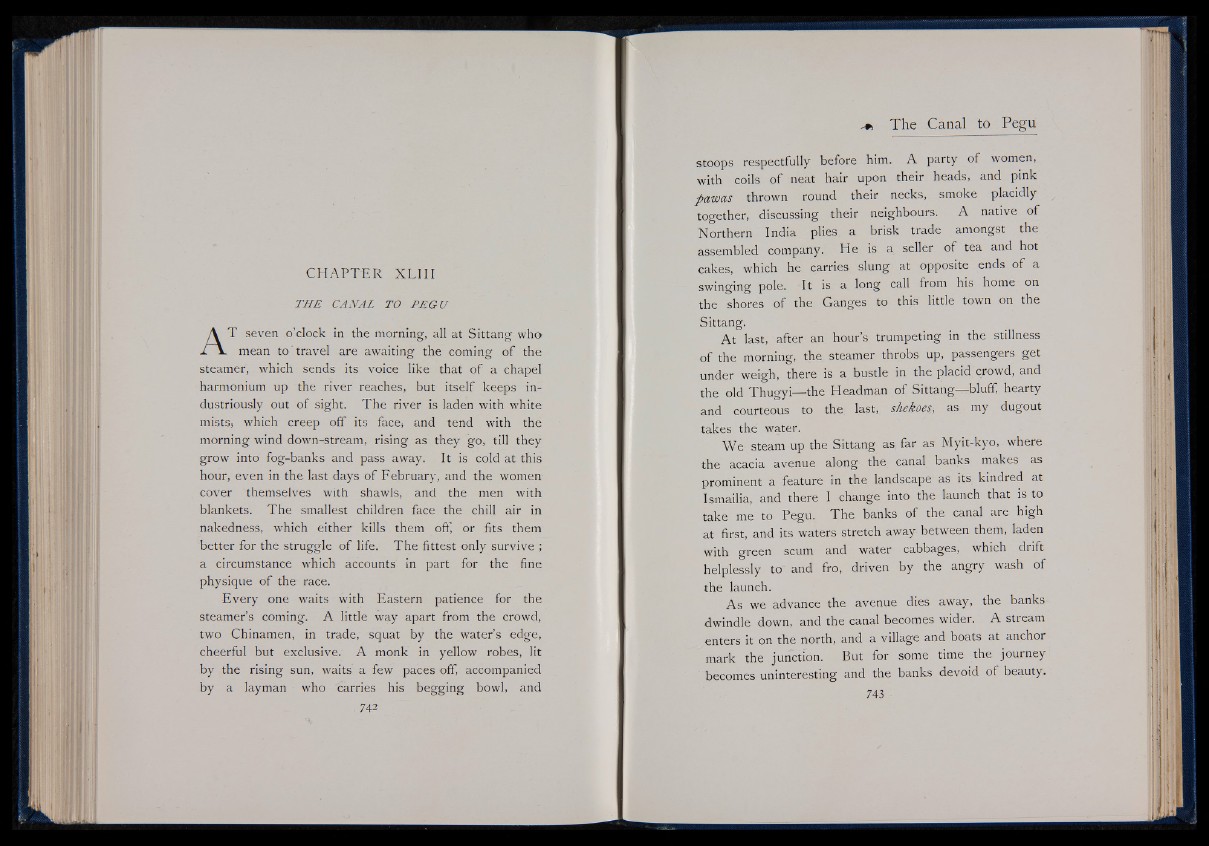
C H A P T E R X L I I I
TH E CANAL TO P EG U
AT seven o’clock in the morning, all at Sittang who
mean to travel are awaitingo; the comingo; of the
steamer, which sends its voice like that of a chapel
harmonium up the river reaches, but itself keeps industriously
out of sight. The river is laden with white
mists, which creep off its face, and tend with the
morning wind down-stream, rising as they go, till they
grow into fog-banks and pass away. It is cold at this
hour, even in the last days of February, and the women
cover themselves with shawls, and the men with
blankets. The smallest children face the chill air in
nakedness, which either kills them off or fits them
better for the struggle of life. The fittest only survive ;
a circumstance which accounts in part for the fine
physique of the race.
Every one waits with Eastern patience for the
steamer’s coming. A little way apart from the crowd,
two Chinamen, in trade, squat by the water’s edge,
cheerful but exclusive. A monk in yellow robes, lit
by the rising sun, waits a few paces off, accompanied
by a layman who carries his begging bowl, and
-•» The Canal to Pegu
stoops respectfully before him. A party of women,
with coils of neat hair upon their heads, and pink
pawns thrown round their necks, smoke placidly
together, discussing their neighbours. A native of
Northern India plies a brisk trade amongst the
assembled company. He is a seller of tea and hot
cakes, which he carries slung at opposite ends of a
swinging pole., It is a long call from his home on
the shores of the Ganges to this little town on the
Sittang.
At last, after an hour’s trumpeting in the stillness
of the morning, the steamer throbs up, passengers get
under weigh, there is a bustle in the placid crowd, and
the old Thugyi—the Headman of Sittang—bluff hearty
and courteous to the last, shekoes, as my dugout
takes the water.
We steam up the Sittang as far as Myit-kyo, where
the acacia avenue along the canal banks makes as
prominent a feature in the landscape as its kindred at
Ismailia, and there I change into the launch that is to
take me to Pegu. The banks of the canal are high
at first, and its waters stretch away between them, laden
with green scum and water cabbages, which drift
helplessly to and fro, driven by the angry wash of
the launch.
As wTe advance the avenue dies away, the banks
dwindle down, and the canal becomes wider. A stream
enters it on the north, and a village and boats at anchor
mark the junction. But for some time the journey
becomes uninteresting and the banks devoid of beauty.
743 ■